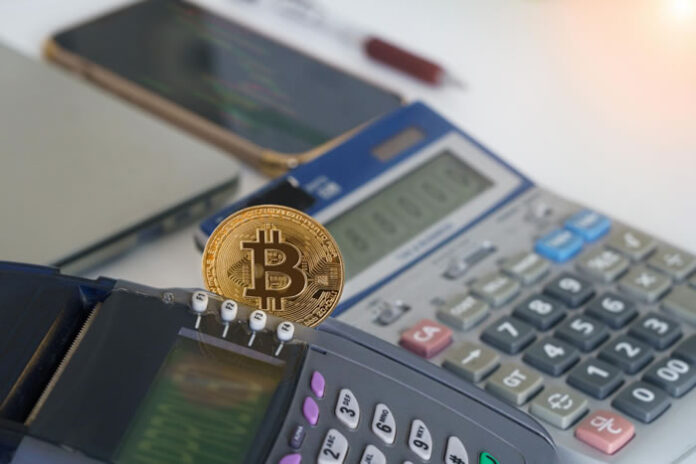In February 2021, the US Labor Department announced that the inflation rate in The United States was 7.9%. Meanwhile, the US national average interest rate for savings accounts is a mere 0.06%. The average person will work their entire life—in 40+ hour increments—to earn a wage, invest their disposable income, and earn modest gains. While people work tirelessly for their money, banks exploit their position in the financial system to make that money work for them. What would your life look like, if you could make your money work for you, the same way that banks do?
This is the future offered by the power of Decentralized Finance.
Decentralized vs. Centralized Finance
Decentralized Finance, also known as DeFi, is an emerging collection of technologies built around the blockchain. A blockchain is essentially a digital record of data that is powered and run by many computers distributed across the world. DeFi creates the opportunity for people to control, store, transfer, save, and spend their own money in a secure digital wallet, rather than within a bank. This reduces your dependence on financial institutions, giving you the freedom to decide what to do with your money, in every step of finance. In the centralized world, institutions such as banks store your money with the main objective of profiting off of it. They are able to lend, borrow against, and spend your money for significantly higher returns compared to the 0.01% interest rates you are offered.
The Paradigm Shift Towards Self-Sovereign Banking
Banks hold and maintain millions of dollars and provide liquidity in our stock markets, loans and mortgages, wealth management services, and other financial instruments that uphold our economy. With DeFi, users can similarly provide liquidity to decentralized exchanges (DEXs) across a wide variety of cryptocurrencies, give loans to others directly, and send and receive funds instantly.
In centralized finance, there are typically barriers to entry and lengthy wait times, such as banks requiring you to keep a minimum balance or a check taking 3 days to clear. DeFi allows any user to start with any wallet balance and complete transactions in a matter of seconds, anywhere in the world. Your money, and the money it earns for you, is now fully in your control, without an institution taking a cut before it reaches your wallet.
Preserving Value Through Cryptocurrency
Cryptocurrencies cannot be manipulated to the same extent as fiat and are fundamentally deflationary. In fiat currencies, manipulation can occur through changing interest rates and increased money printing to stimulate spending in the economy. When too much money is printed, this causes inflation. Consumers have more access to money to drive demand, and thus those who provide goods simply raise their prices if demand cannot be met with equal supply. As a result of inflation, common items, such as food and fuel, will experience a slow, but constant, rise in costs. This is one of the many reasons why your grandparents reminisce about the times when things were cheaper and one of the many reasons why many look to gold as a means to preserve or store value.
Regardless of where you are in the world, all people can agree on the value of the US dollar, the golden standard of the global economy. However, even the US dollar suffers the consequences of being controlled by a centralized authority, such as a federal reserve. To put it into perspective, there are a total of four members in the Board of Governors, the main governing body of the US Federal Reserve System. Imagine four people sitting at a table, deciding on the direction of monetary policy for you and 332.4 million other Americans. The amount of people controlling money for the entire country can fit inside your living room.
On the other hand, cryptocurrencies, while volatile, solve a lot of issues that fiat currencies face. An example would be Bitcoin. Bitcoin has a total supply that will never exceed 21 million coins, making it an attractive storage of value due to its supply ceiling. This amount is immutable and can never be changed by a central authority. As with many other cryptocurrencies, due to its decentralized nature, manipulating monetary policy is extremely difficult.
Similar to buying homes and other assets to protect yourself against inflation, Bitcoin is becoming an effective storage of value to countries that have unstable fiat currencies because of the idea of a “trustless system”, or a system where no single person or entity utilizing it can be trusted to make decisions.
The Problem with DeFi and How COMB is Tackling the Issue
The most prominent barrier to entry for DeFi is the technical experience needed to utilize, interact, and derive value from blockchain technology. Although companies such as Coinbase have simplified the process of purchasing cryptocurrency, it still lacks a lot of functionality to leverage the DeFi ecosystem. Furthermore, many prominent cryptocurrency exchanges and companies do not emphasize the vast ecosystem of applications on the blockchain, many of which pertain to DeFi.
COMB’s mission is to provide “Financial Autonomy for the Ordinary” by addressing multiple lingering challenges associated with crypto currency adoption, such as accessibility, interoperability, and real-world use. COMB is focused on creating a unified ecosystem, bringing the power of DeFi into a single platform.
COMB’s services range from the aforementioned financial services to establishing infrastructure that optimizes and validates transactions on various blockchains. COMB is working on expanding “off-chain” into the real world, providing access to decentralized income opportunities, and augmenting how your hard-earned money can work even harder for you.















